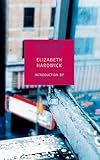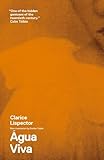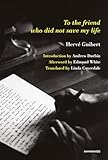I tend to read around writing projects, so in 2023 it was a lot of books connected one way or another to raving, transsexuality, and autofiction.
Raving
Diedrich Diedrichson, Aesthetics of Pop Music
Useful book on defining the boundaries of pop music, so that one can think of contemporary music as in some ways now something else.
 Luis Manuel Garcia-Mispireta, Together, Somehow: Music, Affect and Intimacy on the Dancefloor
Luis Manuel Garcia-Mispireta, Together, Somehow: Music, Affect and Intimacy on the Dancefloor
On the dancefloor as shared space and the complexities thereof. Of course it’s from Duke, who set the pace in humanities academic publishing.
 Kemi Adeyemi, Feels Right: Black Queer Women and the Politics of Partying in Chicago
Kemi Adeyemi, Feels Right: Black Queer Women and the Politics of Partying in Chicago
Had me from the opening anecdote, in which a Black woman pours her drink in the mixer at a club where a white DJ is playing hip-hop that uses the N-word for a white audience.
 Mark Angelo Harrison, A Darker Electricity: The Origins of the Spiral Tribe Sound System
Mark Angelo Harrison, A Darker Electricity: The Origins of the Spiral Tribe Sound System
If you look at the music section in any bookstore, there’s usually not many books on dance music culture. Velocity Press is filling that gap. This one a compendious memoir by one of the founders of the legendary Spiral Tribe.
Nick Bazzano (ed) Unter Rave Posters Volume 2
When I became a raver again after a twenty year chill out, my first party back was by Unter. The series ended in 2023. This volume lovingly documents the last few years of its run. Good times.
Transsexuality
 Raquel Willis, The Risk It Takes to Bloom
Raquel Willis, The Risk It Takes to Bloom
We need more books by Black and other not-white trans people. I learned a lot from this.
 Miss Major and Toshio Meronek, Miss Major Speaks
Miss Major and Toshio Meronek, Miss Major Speaks
Miss Major is a trans icon, and Toshio has done us all a huge favor in recording and editing this book which expresses her non-nonsense approach to, well, everything.
 Jules Gill-Peterson, A Short History of Trans Misogyny
Jules Gill-Peterson, A Short History of Trans Misogyny
Game-changer of a book which locates the origins of the hatred of trans femininity in colonial gender-control projects. Thankful to Verso for this and other trans books they’ve put out.
 Mattilda Bernstein Sycamore, Touching the Art
Mattilda Bernstein Sycamore, Touching the Art
Mattilda lovingly recounts their relation to their grandmother who at one and the same time nurtured their queerness and yet rejected their overt expression of it.
 Stacy Jane Grover, Tar Hollow Trans
Stacy Jane Grover, Tar Hollow Trans
On the rural experience of trans-ness. Not all of us love the city, or belong there. We should belong everywhere. From the Appalacian Futures series from University Press of Kentucky.
 Hazel Jane Plante, Any Other City
Hazel Jane Plante, Any Other City
This one is very much about the city, the city of artists and queer bohemians, as the place in which many of us create ourselves.
 Isle McElroy, People Collide
Isle McElroy, People Collide
I loved this gender-swap novel as a book about cis heterosexuality, about the weirdness the way gender works in the supposedly straight world.
 Aurora Mattia, The Fifth Wound
Aurora Mattia, The Fifth Wound
This effervescent book reclines gracefully in its own excessive prose, conjuring a magical trans-femme lushness, then pulling the carpet out from under. Beautifully made book by Nightboat.
 Casey Plett, On Community
Casey Plett, On Community
Drawing on her Mennonite background and her active engagement in trans literary culture, Casey lays out the tensions within the project of “community.”
Autofiction
 Dan Sinykin, Big Fiction
Dan Sinykin, Big Fiction
Excellent study of the political economy of publishing in the postwar period, which among other things has helped me locate the efficacy of autoficion as one of the tactics in and against it.
 Elizabeth Hardwick, Sleepless Nights
Elizabeth Hardwick, Sleepless Nights
Learned about this one from Sinykin and sought it out. This late seventies book is a still relevant insider account of how to endure the cultural sphere as a (cis, white) woman.
 Renata Adler, Speedboat
Renata Adler, Speedboat
Reading Hardwick sent me back to this, which pre-dates it by a few years. Adler pushing the limits of the novel which can’t account for the shape of certain kinds of life. Like the Hardwick, a lovely NYRB Classics edition.
 Percival Everett, Erasure
Percival Everett, Erasure
Had never read him, then heard him accept the PEN/Jean Stein award with grace and humor. This autofiction is about a Black writer hemmed in by the constraints of the liberal flavor of literary racism.

 Clarice Lispector (translated by Idris Novey), Água Viva and A Breath of Life
Clarice Lispector (translated by Idris Novey), Água Viva and A Breath of Life
I came late to Lispector and gravitated to these formally very free later texts, writing about writing, probably my favorite kind of text.
 Christine Angot (translated by Tess Lewis), Incest
Christine Angot (translated by Tess Lewis), Incest
The way Angot writes—I could never. It’s like my own internal monolog on my manic days, looping back around itself, seething and spitting.
 Hervé Guibert (translated by Linda Coverdale), To the friend who did not save my life
Hervé Guibert (translated by Linda Coverdale), To the friend who did not save my life
I was on a bit of a Guibert kick this year, especially enjoying the later run of autofictional texts which have just so much energy and anger.
 Guillaume Dustan (translated by James Horton and Peter Valente), Nicolas Pages
Guillaume Dustan (translated by James Horton and Peter Valente), Nicolas Pages
How I love Dustan! The incredible directness and economy of his writing. How the form of the text has to be re-imagined to express the form of gay life. Grateful to Semiotext(e) for continuing to bring French autofiction into English.
 Antonin Artaud (translated by Alexis Lykiard), Heliogabalus
Antonin Artaud (translated by Alexis Lykiard), Heliogabalus
Anaïs Nin says that Artaud declared to her “I am Heliogabalus!” Which is why this odd little treatise that Artaud wrote on the “transsexual” emperor (empress?) of Rome makes this list. Delicious. Sumptuous edition from Infinity Land Press.
 Mahmoud Darwish (translated by Ibrahim Muhawi), Journal of an Ordinary Grief
Mahmoud Darwish (translated by Ibrahim Muhawi), Journal of an Ordinary Grief
I’ve wanted to read Darwish for some time. After Israel’s (latest) attack on Gaza I had no excuse to delay, so I’m working my way through these translations of his prose works from Archipelago books.
More from A Year in Reading 2023
A Year in Reading Archives: 2022, 2021, 2020, 2019, 2018, 2017, 2016, 2015, 2014, 2013, 2012, 2011, 2010, 2009, 2008, 2007, 2006, 2005
The post A Year in Reading: McKenzie Wark appeared first on The Millions.
Source : A Year in Reading: McKenzie Wark











